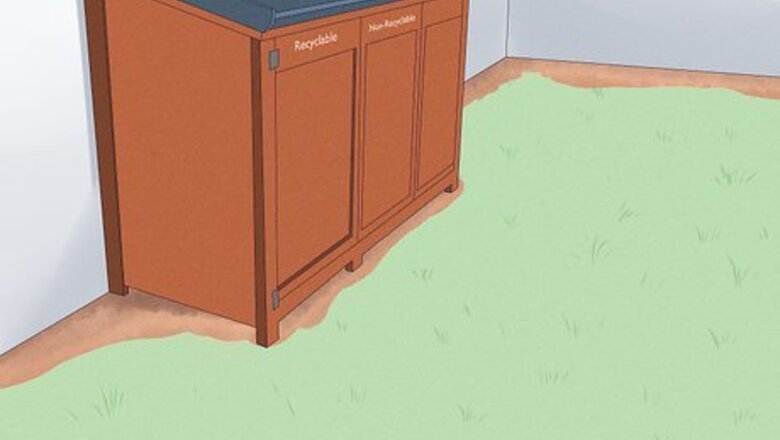
views
- Cover your outdoor trash to keep cats from sneaking in for food.
- Place criss-cross branches or rocks around your garden to deter cats.
- Use a motion-activated sprinkler or an ultrasonic alarm to scare cats away.
- Try scents like citrus, garlic, and rue to deter cats from your property.
Cover your outdoor trash.
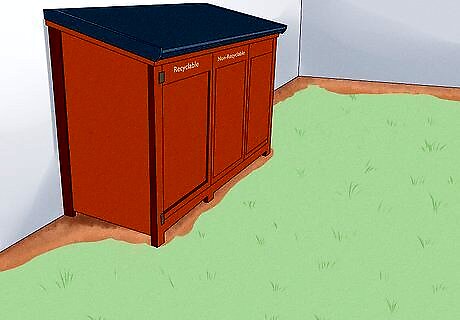
Deter cats by covering your garbage to make your yard less enticing. When cats come into your garden, they’re typically looking for either shelter or food. If you keep trash cans outside, be sure to cover them with lids at night to prevent cats from sneaking in for a snack. Covering your outdoor garbage will also help deter other nighttime wildlife, like racoons.
Place sticks around the garden.
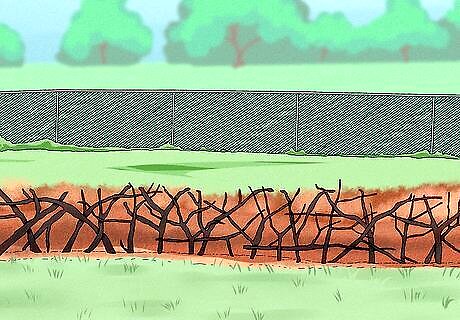
Cats don’t like walking on sticks, so they’ll stay away. Criss-cross branches across your plant beds or your vegetable garden. Cats won’t like walking on the branches, and you can place plants in the openings.
Mulch and water your garden.

Keep your garden moist and mulched so it’s less like kitty litter. Ever notice how cats are attracted to dry, sandy soil? It’s because they like pooping in a place that reminds them of a litter box. Add mulch to your garden regularly and keep it watered—that way, cats are less likely to equate your yard with a potty area. Typically, you can safely mulch twice a year.
Cover the ground with rocks.

Cats don’t like climbing on rocks, so they’ll head somewhere else. Some people aren’t a fan of this method, since it can be a little eye-catching. However, if you really want to keep cats away, cover your garden with lava rocks or decorative stones. Be careful not to squish your plants! Be sure to use large rocks, not pebbles. Cats don’t really mind stepping on small rocks, but they’ll stay away from bigger ones.
Place spike mats in the garden.

Spike mats prevent cats from walking through an area. Though these mats sound malicious, they are not harmful to the cats. They have small plastic spikes on the mats that cats don't like walking on. Cut the mat into pieces and then set them along your beds, spiky-side up. The spikes won’t actually hurt the cats, but they will feel a little uncomfortable on their paws.
Install an automatic sprinkler.

Use water to scare cats off your property. Motion-activated sprinklers are a harmless way to deter cats from coming into your garden. Simply hook it up to your hose and set it up near where the cats come into your yard. When they walk by, they’ll get shot with a burst of cold water, hopefully sending them elsewhere. The sprinkler won’t turn on unless something walks in front of it, so you won’t be wasting any water.
Use scent repellents.

Cats dislike certain strong smells, which you can use to your advantage. Place citrus peels (oranges and lemons work the best), garlic, vinegar, coffee grinds, mustard, citronella, or eucalyptus around your garden. These smells won’t harm the cats, but they will probably make them head elsewhere. You can also plant lavender, rosemary, lemongrass, and rue in your garden. All of these plants put off a smell that cats don’t like. Smells diminish over time, so be sure to replenish your scent deterrents every few weeks or so.
Try an ultrasonic alarm.
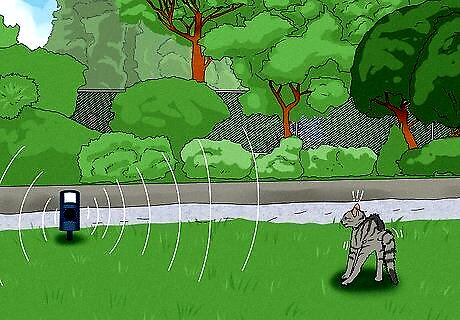
Ultrasonic alarms emit noises and lights that cats don’t like. Set up a motion-activated ultrasonic alarm in your yard, then turn it on at night. When a cat walks by, the alarm will emit a high-pitched noise and also flash some lights to scare the cats off. Ultrasonic alarms are also effective against other nighttime critters, like raccoons, opossums, and rodents.
Install chicken wire.

Chicken wire is a simple barrier that can protect your plants. If you don’t mind having a fenced-in garden, simply install some chicken wire around the perimeter to keep cats out of your garden. Most cats can jump pretty high, but the chicken wire will be enough of a deterrent that they’ll probably head elsewhere. Chicken wire is a great solution if you have critters munching on your plants, too. It helps keep out bunnies and deer, which are both pretty destructive to gardens.
Block access to any shelter.
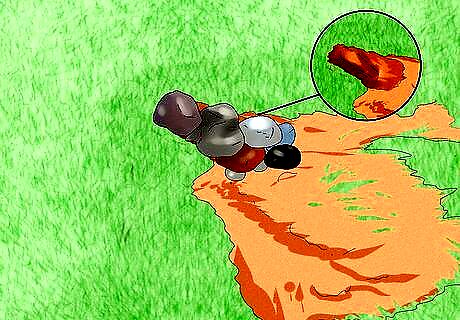
Send cats elsewhere when they look for shelter for the night. A lot of times, cats will come onto your property looking for a warm, dry place to sleep. If you have any crevices in your yard, block them off with rocks or branches to keep cats away. Cats are usually pretty small, so get creative when looking for their shelter spots. They might even hunker down underneath large bushes or tall trees.
Ask your neighbors to stop feeding the cats.

Work together as a neighborhood to keep cats out. Cats who live outdoors are mostly looking for food, especially during the day. If you have neighbors that are feeding the cats, ask them if they’d mind stopping. That way, the cats are less likely to come to your neighborhood in the first place. If you have roaming cats outside without owners, consider calling your local animal shelter and asking about a spay/neuter program. Many shelters will use catch-and-release methods to fix stray cats and prevent new stray kittens.




















Comments
0 comment